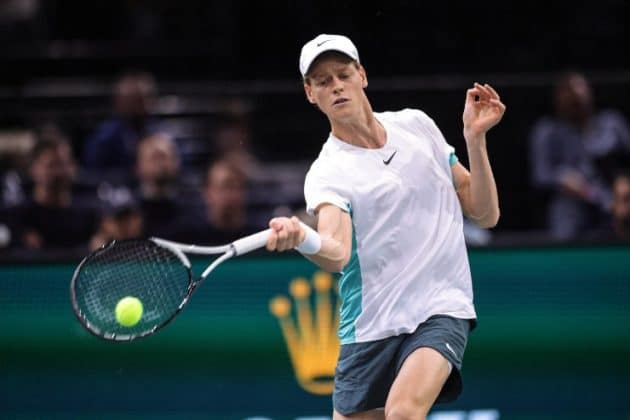Sinner, if it happened, it’s only because of him. Another star on the South Tyrolean champion’s uniform: that’s what the Italian did.
Do you remember when, on the eve of the Nitto Atp Finals, Jannik Sinner had suddenly decided to withdraw from the tournament in which he was engaged? If the answer is yes, you certainly have not forgotten why, despite himself, he had opted for this decision.
He had abandoned the Paris Bercy Masters 1000 on the run, in case you have removed it, as a sign of rebellion. He had finished playing his first and only match beyond the Alps in the middle of the night, at 2:37 a.m., precisely. He was supposed to be back on the court 14 hours later, but with such an important date on the horizon, the one at the foot of the Mole, it just wasn’t the case to stress so much. There was no need, moreover, as he had by now already abundantly met all the goals he had set out to achieve in what was his annus mirabilis. Therefore, once he had consolidated his fourth place in the Race thanks to a first-round victory at Paris-Bercy, he had packed his bags and rushed to train for the Finals.
Here, you will be pleased to know that his “sacrifice” was not an end in itself. But that Jannik, thanks to that gesture, is now not just a national hero, but an international one. All tennis players on the circuit are indebted to him, given that it is thanks to him that Atp and Wta decided to use a hard fist and say enough to certain intolerable choices.
Strict Wta and Atp: Sinner reform is already in effect
A momentous turning point has occurred in the past few hours. Through a joint statement, signed by the two professional associations, it was made official that there will be but no more night matches and that evening competitions will not extend beyond 7:30 p.m.
But it didn’t end there: Atp and Wta, by mutual agreement, have in fact twisted quite a few rules to protect tennis players. Starting as early as January, tennis courts around the world will not be allowed to host more than five matches a day: three in daytime session and three in the evening. It starts at 11 a.m. and it is recommended that the evening session begin by 6:30 p.m., with an hour’s grace in case you just can’t make it.
No more games will start after 11 p.m., as has happened in the past, unless the supervisor authorizes it. Games not yet started at 10:30 p.m. will “move” to the first available field so that play will begin as soon as possible. The only exceptions allowed will be for tournaments observing certain “local traditions,” such as those in Acapulco and Umag, where it has always been played on center court in the late afternoon. The Sinner reform, in short, has left nothing to chance.
